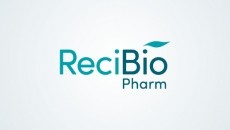Inhaled insulin gets green light from FDA panel
injections for their insulin therapy yesterday, after a US Food and
Drug Administration (FDA) advisory committee gave its backing to an
inhaled formulation of the drug developed by Pfizer, Sanofi-Aventis
and Nektar Therapeutics.
The panel voted by seven to two to recommend approving the product, called Exubera, on the grounds that its advantages in terms of ease of administration and its potential to improve patient compliance outweighed lingering doubts about its safety.
Strict compliance with treatment is the primary objective in diabetes, as studies have shown that rigorous control of blood glucose levels is the key to preventing the serious complications that can affect long-term sufferers of the disease, including blindness, nerve damage and cardiovascular disease.
As an inhaled therapy, Exubera would be expected to make patients more likely to take insulin treatment regularly and on time. But the safety of the formulation has been questioned after a clinical trial suggested that the drug may adversely affect lung function over time - a serious side effect for a chronically-dosed treatment. However, the companies have since generated data suggesting that Exubera does not reduce lung function in diabetics who receive the drug for two years or more.
That said, the FDA is not bound to follow the advice of its advisory committees, and given the criticism it has received of late on its safety record - particular following the withdrawal of Merck & Co's painkiller Vioxx (rofecoxib) last year - a positive verdict for Exubera is by no means assured. The companies have agreed to carry out long-term follow-up studies, out to 2019, to monitor the drug's safety.
In addition the lingering questions about safety, panellists also expressed concerns about how effectively patients would be in using the Exubera delivery device efficiently, so that the dose delivered to the lungs would be consistent.
Exubera is a short-acting insulin delivered at mealtimes, so will not completely remove the need for injections, as many patients will still require a long-acting jab each day to provide background cover.
Current estimates put the number of people with diabetes worldwide at nearly 180 million, a number which is expected to jump to 300 million in the next 20 years, and analysts predict that that first non-injectable insulin to reach major world markets stands to achieve sales upwards of $1.5 billion a year.
Meanwhile, other inhaled insulins are in Phase III clinical development from Eli Lilly/Alkermes and Novo Nordisk/Aradigm, while a rival product from Mannkind is in Phase II.
Even if Exubera does win through to market, it cannot be promoted as the first non-injectable insulin product to be commercialised. In May, Canadian biotech firm Generex Biotechnology won its first approval, in Ecuador, for an insulin oral spray called Oral-Lyn.


















